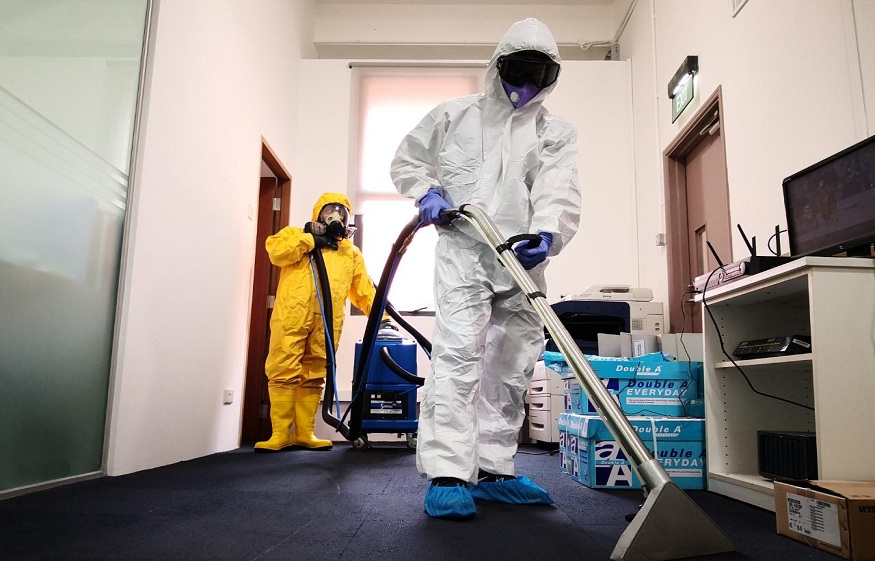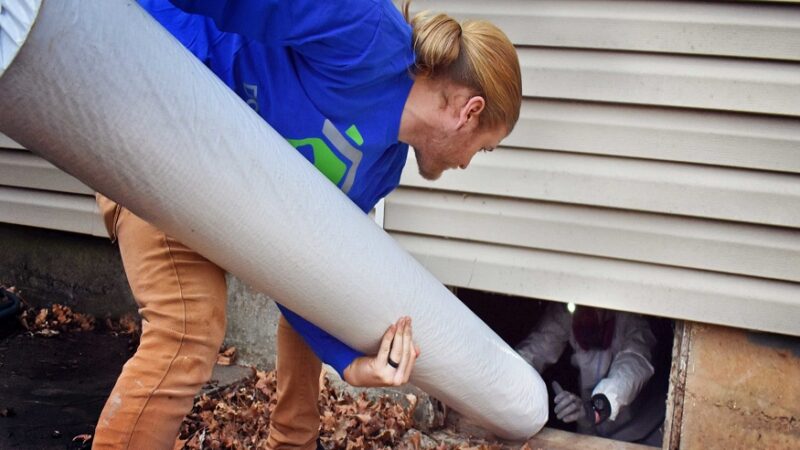What crime scene cleanup services Hancock County should know about HIV

The risk of contracting HIV by people providing crime scene cleanup services Hancock County is very high as they sometimes deal with atrocious murders committed as the result of alcohol or drug intoxication. In this case, there might be myriads of infected needles thrown around the place. You may wonder why those syringes and needles must be necessarily infected. Just look at the recent statistics – 87% of drug addicts, those who inject heroin or other synthetic drugs into their veins, die out of blood-borne diseases, either hepatitis B or C or HIV. Therefore, it’s of pivotal importance for crime scene cleanup services Hancock County to be aware of this virus and take all necessary preventive measures to avoid contracting it while cleaning the crime scene.
Although HIV has already existed for a long time, there are still many wrong ideas and prejudices around it. For instance, people are often afraid of contracting HIV through household contact. In fact, these fears are greatly exaggerated, and communication with HIV-infected people is safe. HIV is not adapted to survive in the environment and dies quickly outside the body. However, if the particles of contaminated blood are left on sharp objects like needles or knives, a person who contacts these objects can easily be infected. This situation is very common for people providing crime scene cleanup services Hancock County that’s why staff should know everything about this virus and how to avoid being infected.
First of all, it is necessary to distinguish three concepts: HIV, HIV infection, and AIDS. HIV is a human immunodeficiency virus that causes a disease called HIV infection. HIV infection is the presence of an immunodeficiency virus in human blood. If HIV is not treated, then after 5-10 (sometimes up to 20) years, the immune system – the body’s ability to resist various diseases – begins to decline and develops AIDS, acquired immunodeficiency syndrome. The essence of the disease – HIV gradually destroys the human immune system (protective) and makes it unable to fight various infections.
Over time, the immune system weakens so much that the human body cannot cope with even those infections that do not harm healthy people (this stage is called AIDS). Only a doctor can diagnose AIDS that’s why people specializing in crime scene cleanup services Hancock County must undergo a regular medical check-ups. Immunity is a special function of the human body to protect itself from viruses, bacteria, as well as substances with foreign antigenic properties. As a result of HIV infection, a person becomes “vulnerable” to germs. The disease develops slowly for several years, the only sign of the disease may be an increase in lymph nodes. Then such symptoms as rise in temperature, long-term intestinal disorders, sweating, and weight loss start developing. Later, people who are HIV positive fall down with pneumonia, pustular and herpetic skin lesions, sepsis (blood infection), and malignant tumors.
All these diseases lead to the death of the patient. HIV is considered one of the most dangerous viruses for humans. Despite many years of study, HIV still lacks reliable drugs and vaccines for HIV. The only thing that is comforting about HIV is that this infection is risky only in certain situations that can be prevented. Obviously, crime scene cleanup services Hancock County must pay a lot of attention to taking preventive measures and protecting their staff from the negative consequences of contacting infected items.
The skin and mucous membranes reliably protect the human body from the virus. But wounds on them and inflammation increase the likelihood of infection. This is the gateway to infection. That’s why even accidental needle pricks when providing crime scene cleanup services Hancock County can result in contracting the dangerous virus.
All professionals who deal with potentially infected items should be given special training on safety measures, be provided with a special uniform to protect themselves from contracting dangerous diseases, and should regularly undergo a medical check-ups.






